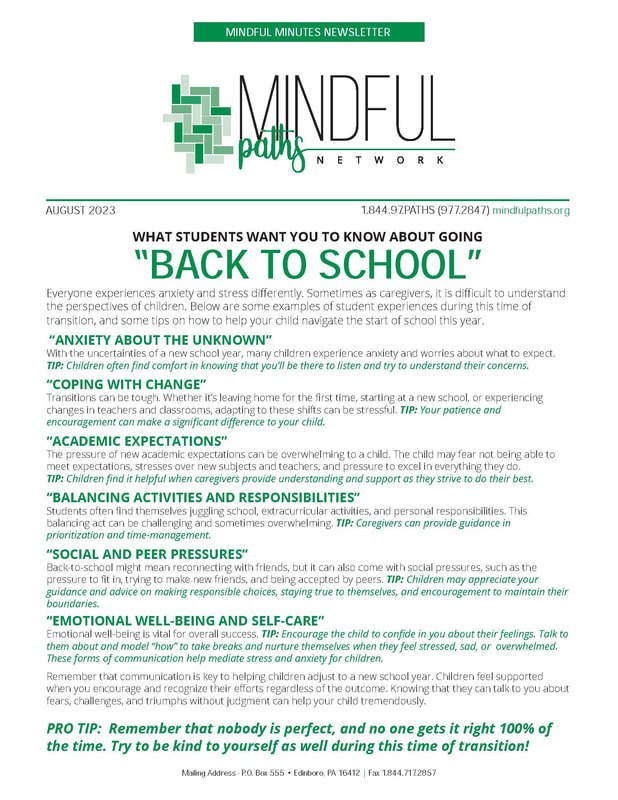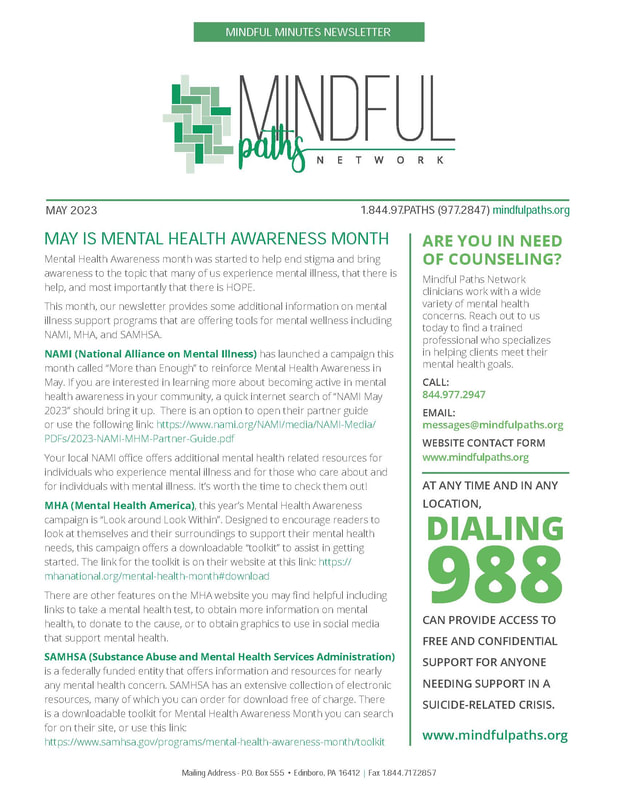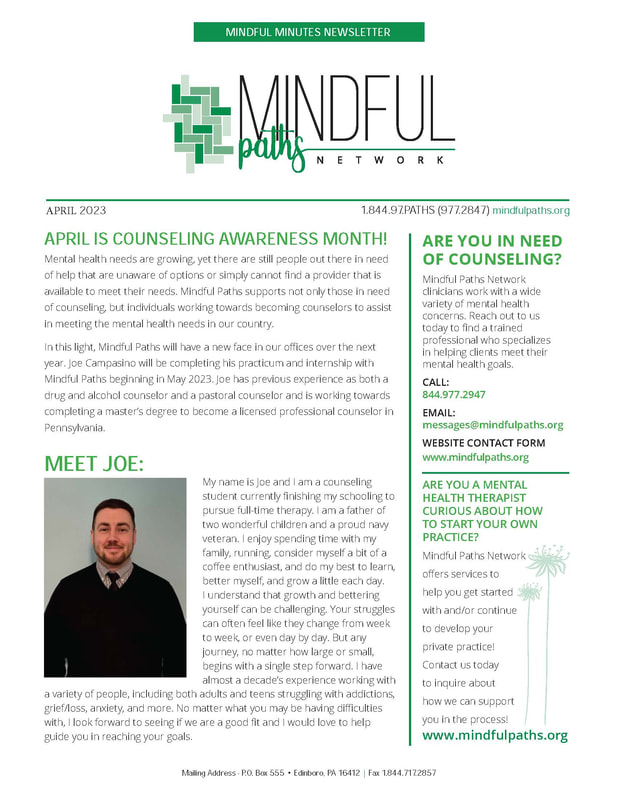|
This is a recent email message from John Sommers-Flanagan, Ph.D., Professor in the Department of Counseling at Phyllis J Washington College of Education, who offers an opportunity to participate in the "Montana Happiness Challenge":
As a transition out of Suicide Prevention Month (September), I’m promoting a social media project that we’re calling the “Montana Happiness Challenge.” The Montana Happiness Challenge consists of 20-weeks of evidence-based happiness activities that people can use for themselves, with friends or family, in schools, in the workplace, through community agencies, etc. The first week’s activity—which started October 1—is titled “Music, Mood, and Meaning.” The purpose of this project is to empower anyone and everyone to use happiness-based strategies to complement traditional suicide prevention. It’s free, and we’re encouraging anyone who’s interested to try out one or more of the weekly happiness activities. . . and, if they so desire, to share their experiences via social media. For a description of the project and the 20-week calendar, go to the “Happiness Challenge” page on the Montana Happiness Project website: https://montanahappinessproject.com/the-happiness-challenge If you want to get started (week 1 is underway!), you can go to a description of the first activity/assignment on my blog: https://johnsommersflanagan.com/2023/10/01/music-mood-and-meaning/ For those of you who are into any social media platform (e.g., LinkedIn, Facebook, Instagram, Youtube, etc.), I encourage you to search out, follow, like, and share our happiness content and your experiences (#MHPHappinessChallenge and #MontanaHappiness hashtags) to whatever extent you can. Again, this is free. Our purpose is to spread a little happiness. Consider finding a buddy (or going solo) and trying out some or all of the activities. I should also note that we’re not doing toxic positivity; we believe there are times and places to go deep into pain, grief, oppression, and other difficult life experiences. However, we also believe many people don’t know enough about evidence-based happiness practices, and so we’re sharing and sharing as much as we can manage. Thanks for reading and for considering the chance to participate. Sincerely, John SF John Sommers-Flanagan, Ph.D., Professor Pronouns: he/his/him Department of Counseling PHYLLIS J. WASHINGTON COLLEGE OF EDUCATION ED 201 | Missoula, Montana t: (406) 721-6367 (cell) | e: [email protected] U N I V E R S I T Y O F M O N T A N A The University of Montana acknowledges that we are in the aboriginal territories of the Salish and Kalispel people. We honor the path they have always shown us in caring for this place for the generations to come. Author of Suicide Assessment and Treatment Planning: A Strengths-Based Approach and eight other books. Follow my blog at: https://johnsommersflanagan.com/
0 Comments
Dear Friends and Colleagues –
The conference is less than two weeks away! Please encourage anyone interested to get their registrations in today! Please note: There are a limited number of scholarships available and special student pricing for registration! Please reach out to Sharon at [email protected] for more information! As a reminder, the 7th Annual Suicide Prevention Conference, will be taking place on Wednesday, September 27th at 8:00 AM at the beautiful Ambassador Hotel and Conference Center in Erie, PA. This year's conference is themed: "A Public Health Approach to Suicide Prevention: Recognizing and Supporting All Areas of Our Lives (based on the CDC’s Seven Suicide Prevention Strategies)." Join us for a day filled with engaging sessions, inspiring speakers, and practical workshops. Together, we will explore innovative approaches to suicide prevention, learn effective strategies for intervention, and discover the importance of mental health and suicide awareness. By attending this conference, you will not only gain valuable knowledge and skills, but also contribute to the collective effort of saving lives. Your presence can make a difference in someone's journey towards hope and healing. Don't miss out on this opportunity to be a part of something greater. Register now to secure your spot at the 2023 Suicide Prevention Conference.. Remember, together we can break the silence and save lives. We look forward to seeing you at the Ambassador Hotel and Conference Center on September 27th. Best regards, The Suicide Prevention Advisory Board Wednesday, September 27, 2023 8:00 AM Suicide Prevention Conference 2023 Does anxiety interfere with your day-to-day life? Do you feel your relationships suffer because of your anxiety responses? Have you tried to manage your anxiety in the past and had poor results?
If you find your anxiety is interfering with your daily functioning, consider joining our FREE two session group experience. The last Friday of July (7/28/2023) and the first Friday of August (8/4/2023), our intern Joe Campasino, and Dr. Archer will be co-facilitating a FREE two session anxiety management group at our Edinboro location! The content of this group will include a working definition of anxiety, common symptoms of anxiety, and various ways anxiety can be expressed. This group will offer an introduction to anxiety management strategies, practice using anxiety management skills, fine tuning anxiety management strategies to fit individual situations, and group processing of various anxiety and anxiety management experiences. At the conclusion of this group, participants can expect to be able to identify anxiety symptoms and utilize strategies to manage or even prevent their anxiety symptoms. JOIN THE GROUP The first session will be Friday July 28th from 1pm – 2:30pm, and the second session will be August 4th from 1pm – 2:30pm. The group will have a limited number of spots available, so contact us today to express your interest. Dr. Archer and/or Joe will be reaching out to those interested, in the order of requests, to determine if you would be a good fit for this opportunity. To be placed on the waitlist, please call 844.977.2847 and choose extension 1, option 1. Leave a message with your name, and your phone number, we will return calls in the order received. School is letting out and the excitement of summer vacation is near. For many of us this time of year brings improved mental health, but for others there can be a decline in mental health. Unfortunately, the warmer months don’t bring a positive emotional boost for everyone. Below is some information on mental health decline in the summer months. Increased Stress For some, warmer temperatures instigate an increase in stress levels. When under stress, there is often an increase in irritability and aggression. Depression and Suicide Risk Nori-Sarma et al. (2022) investigated emergency room visits for mental health related concerns in relation to outside temperature levels. Their research revealed that emergency room visits for mental health reasons (across the United States) are 8% more likely on the hottest days. Tips to build and maintain positive mental health in the coming months:1. Dress in light colored, light weight clothing, and seek air- conditioned areas and/or shade when available. 2. Remain physically active, whatever that means for you. 3. Make restful sleep a priority; go to bed and wake at the same time each day. 4. Maintain a consistent daily routine. 5. Choose healthy coping strategies for stress and mood; seek support as needed. HAPPPIER TIMESScience has identified factors related to a mental health boost in the warmer months.
Vitamin D Increased sun exposure leads to increased vitamin D levels, a factor in positive mental health. Spending time in the sun also helps your body produce more melatonin (sleep hormone) at night, allowing you to sleep better. Good sleep is important for a positive mood! Physical Activity Warmer weather leads to being outside walking, kayaking, jogging, swimming, and several other outdoor activities. The scientific community has provided numerous links between physical activity and improved mental wellbeing. Did you have a New Year’s resolution to be healthier in 2023 but you’re struggling with the “how-to”? The headings and questions that follow are based on the 8 dimensions of wellness (SAMHSA, 2016). Perhaps these questions will help guide you toward achieving your health and wellness goals. Physical Wellness Are your nutritional needs being met? Are you getting the recommended amount of sleep each day? Are you physically moving your body? Intellectual Wellness Are you engaging in activities to keep your mind active? Do you make efforts to better understand others and their point of view? Have you considered attending or teaching a class on an area you are enthusiastic about? Financial Wellness Are your spending and saving habits in line with your long term goals? Does your current source of income allow you to meet your financial obligations and have additional resources? Do you have debt? If so, do you have a plan to manage your debt efficiently? Environmental Wellness Do you participate in conservation efforts? Is your personal work space well organized? Do you find enjoyment in your living space? Are you spending time outdoors? Spiritual Wellness Have you defined your personal values? Do you share your personal values and beliefs with others? Do you take the time to reflect on your personal sense of spirituality? Social Wellness Do you reserve quality time for friends and family? Are you making time to meet new people or visit new places? Are you taking part of social interest groups that are meaningful to you? Occupational Wellness Do you feel personal satisfaction in your work? Does your career provide you with a sense of accomplishment? Does your work fit your values? Do you schedule leisure time? Emotional Wellness Are you able to acknowledge your feelings without judgment? Do you manage your stress in ways that feel restorative? Do you take responsibility for your own behavior? Are there people in your life you have developed safe and trusting relationships with? ARE YOU A MENTAL HEALTH THERAPIST CURIOUS ABOUT HOW TO START YOUR OWN PRACTICE?
Mindful Paths Network offers services to help you get started with and/or continue to develop your private practice! Contact us today to inquire about how we can support you in the process! The month of February often spurs discussion around heart health. Mental health providers are most familiar with emotion-based, “heart strings”. If you feel your romantic relationships or close friendships could use a “fine tuning”, keep reading for some communication points to consider. Famously known for their research and couples work, John and Julie Gottman provide poignant suggestions that could benefit all types of relationships: Define what trust and commitment looks like in the relationship for each party. How can you help each other feel safe and comfortable within the relationship? Openly discuss the level of intimacy you are comfortable with in the relationship. Determine emotional, physical, sexual, and mental boundaries with one another. Communicate how personal growth and spirituality impact your relationship. Do you share with each other or is this something you choose to keep private? Consider whether you share your hopes and dreams with each other. How do you feel supported by each other when these discussions ensue? Identify how money may impact the relationship. Honest communication of financial ability and preference within the relationship can help prevent unintentional resentments. Reconcile your differences with a curious, rather than an accusatory approach. Consider which differences might be situational or perpetual in the relationship. How do you seek to understand each other’s perspective without being disrespectful? If you find yourself in need of education or practice with relationship communications, consider contacting a mental health professional. Whether you need practice with boundary setting and enforcement, assertive communication strategies, or conflict resolution, it’s likely there’s a professional out there that’s right for you.
Are you noticing the cooler weather and less daylight are correlating to decreased feelings of well-being? If so, you aren’t alone. Keep reading for simple lifestyle choices that may benefit your physical and mental health during the coming months. • FOOD CHOICES You might notice that comfort food quickly boosts your mood. Have you also noticed that you have a “crash” sometime after consuming these foods? Research suggests that healthier food options correlate with a more sustainable sense of well-being. A helpful hint to finding more sustainable nutrition in a grocery store is to shop around the perimeter, where the fresh and unprocessed foods are usually found. • ACTIVITY LEVELS Are you moving your body less during these darker months? It is important to engage in physical activity (of any type) year-round to maintain your physical well-being, which is directly linked to mental well-being. Research shows physical activity does not need to be rigorous to be beneficial. Take care to always be mindful of your personal body needs and consult your doctor if you aren’t sure. • INTERPERSONAL RELATIONSHIPS Are you feeling hopeless when communicating with someone close to you? Sometimes communication styles and miscommunications cause us stress and can lead to feelings of depression over time. If this sounds familiar to you, consult a mental health professional to work on interpersonal communication skills. If you are in an unsafe relationship, there is help. Reach out for help when you are being abused. A national resource for getting the help you need is the national domestic violence hotline: 1.800.799.7233 • SLEEP SCHEDULES Feeling tired, or that you cannot get restful sleep? Sleep is often the number one culprit for poor healing both physically and mentally. Without proper sleep and sleep hygiene (the routine you follow to get yourself ready to fall and stay asleep), your body and mind can both suffer. The general guideline for an adult is 7-9 hours of sleep each night for an adult, 8-10 hours for a teen, 9-12 hours for school age children and even more sleep for younger children. If you suspect sleep could be hindering your ability to function properly, you might consider consulting your doctor to find a solution. |
Robin S Archer Phdis the founder of Mindful Paths Network, a group supporting counselors in their own private practice missions to provide counseling services for children, adolescents, adults, groups, couples, and families experiencing a wide variety of behavioral and mental health concerns. Mindful Paths Network's newsletter addresses a variety of mental health concerns. This blog is an extension of the newsletter which is not currently available by email request. Archives
October 2023
Categories |



 RSS Feed
RSS Feed